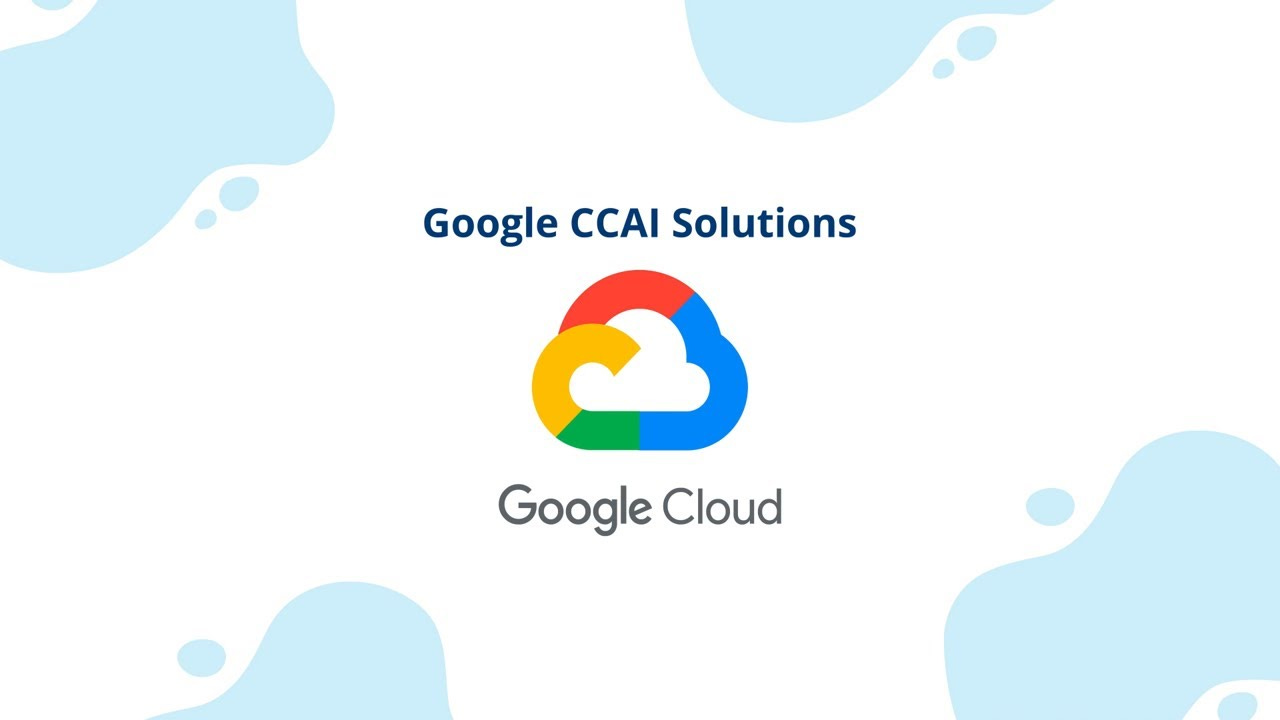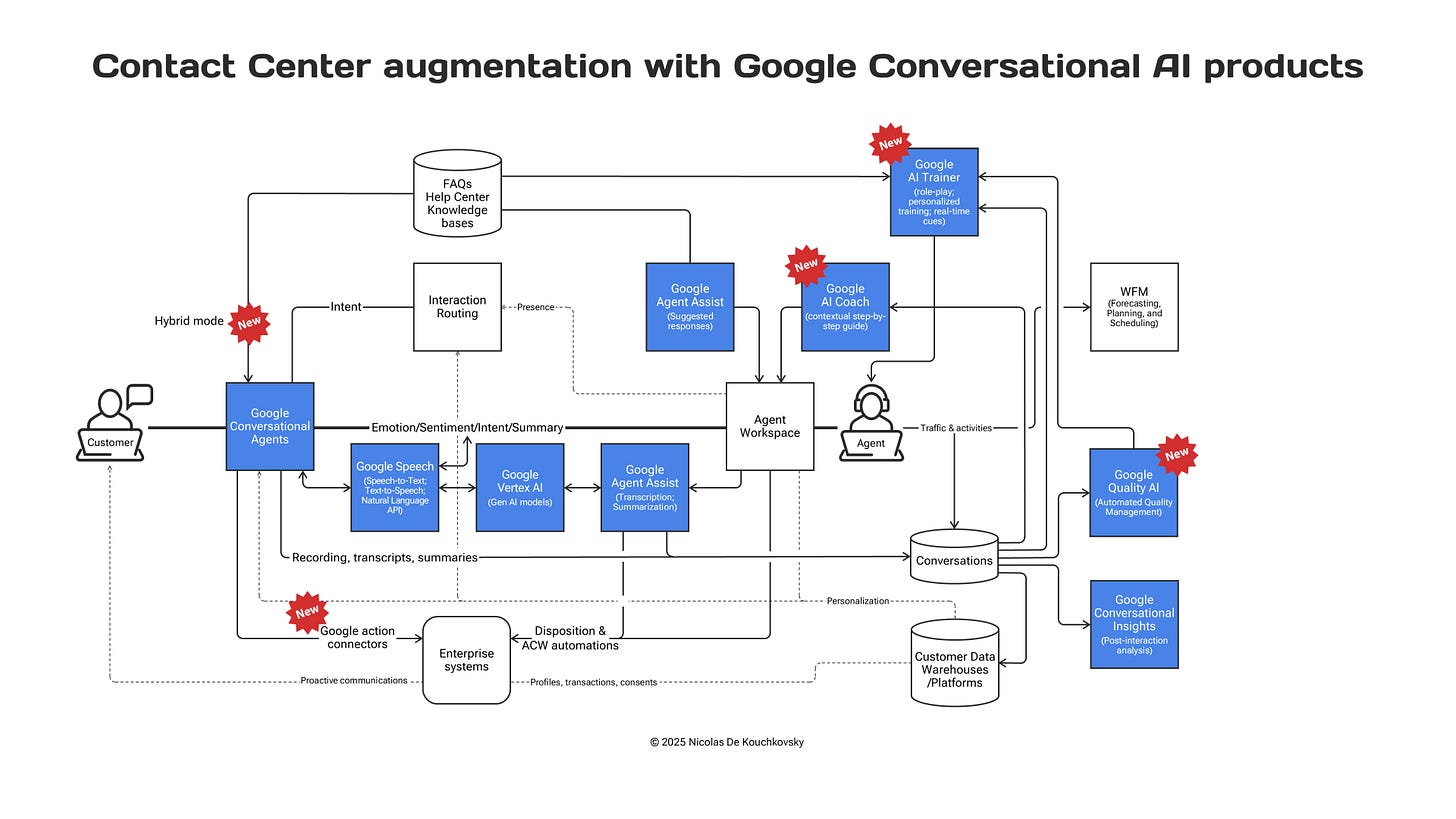In the past few weeks, Google made two notable announcements in the CX space: a major expansion of its strategic partnership with Salesforce and the launch of three new Conversational AI products.
Google CCAI pioneered CX AI, powering conversational AI for several CCaaS providers before they charted their own paths. It also established a stronghold in the enterprise market, securing a dominant position.
However, Google has been surprisingly quiet since its 2022 UJET Strategic Partnership. Last September’s launch of its Customer Engagement Suite with Google AI mainly consolidated existing assets — UJET-based CCaaS (Google CCAI Platform) and its Conversational AI solutions. After such a quiet stretch, it’s worth a closer look.
Partnership with Salesforce
Alongside Salesforce, Google announced three key developments:
Adding Google Gemini as an option for Agentforce
Making Agentforce available on Google Cloud
Enabling agent-to-agent intelligent handoffs, advancing AI interoperability
What makes this particularly interesting is Google's position in both enterprise and consumer markets. Google can develop consumer-facing AI agents that, combined with interoperability, could become a pivotal force in shaping customer experience in an agentic world.
Conversational AI Enhancements
For self-service, Google is adding a slew of new capabilities to its Conversational Agents, that propel them into the agentic world:
30 new voice models and Natural-sounding HD voices
A blend of generative AI and rules-based control to create AI agents
30 data retrieval connectors to expand knowledge access
70 action connectors for greater automation
Improved toolset for observability, evaluation, and testing agents at scale
Four prebuilt agents for flight booking, movie ticketing, shopping assistance, and appointment scheduling
The ability to tailor approaches for transactional and informational queries is key to scaling conversational self-service.
Google Console enables the creation of both rule-based workflows (Flows) and generative ones (Playbooks), merging them into hybrid agents. These agents can dynamically switch strategies—fallback to generative when a predefined intent isn't found, for example. Responses can be deterministic, fully generative, or a hybrid, leveraging any LLM available through Vertex AI.
New Product Offerings
Google further bolstered its offering with three new products:
Google AI Coach, which enhances Agent's knowledge recommendations with step-by-step guidance for customer service representatives
Google AI Trainer, a role-play onboarding and training tool that works offline and in real-time
Google Quality AI, delivering Automated Quality Management
Google's Conversational AI products now cover a broad range of AI use cases, prompting me to map them onto my AI use case diagram.
With these moves, Google reaffirms its position in the CX space, signaling its ambition in an increasingly AI-driven landscape.




